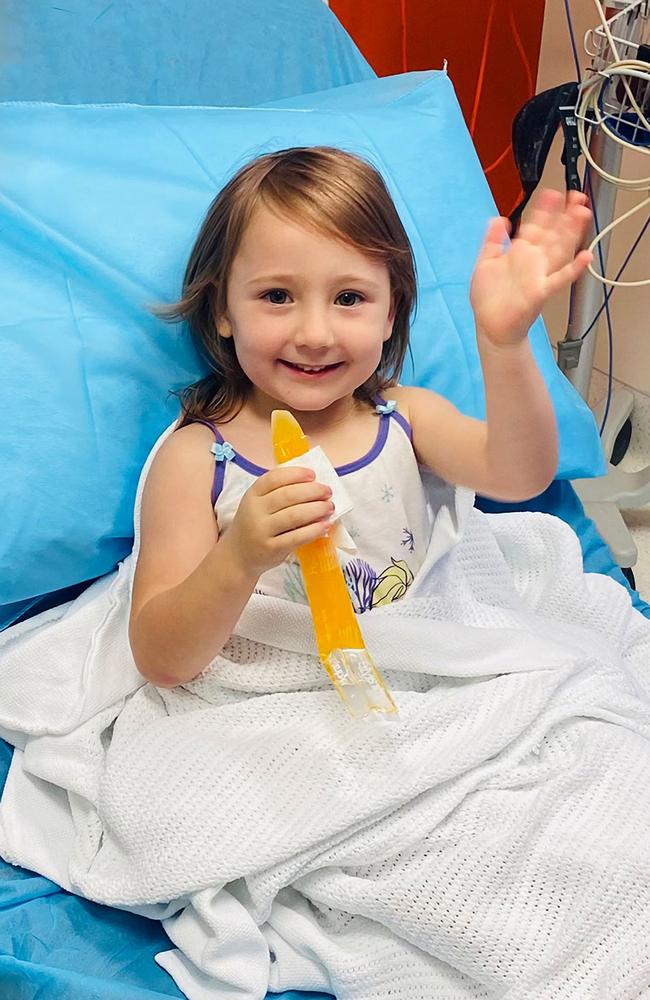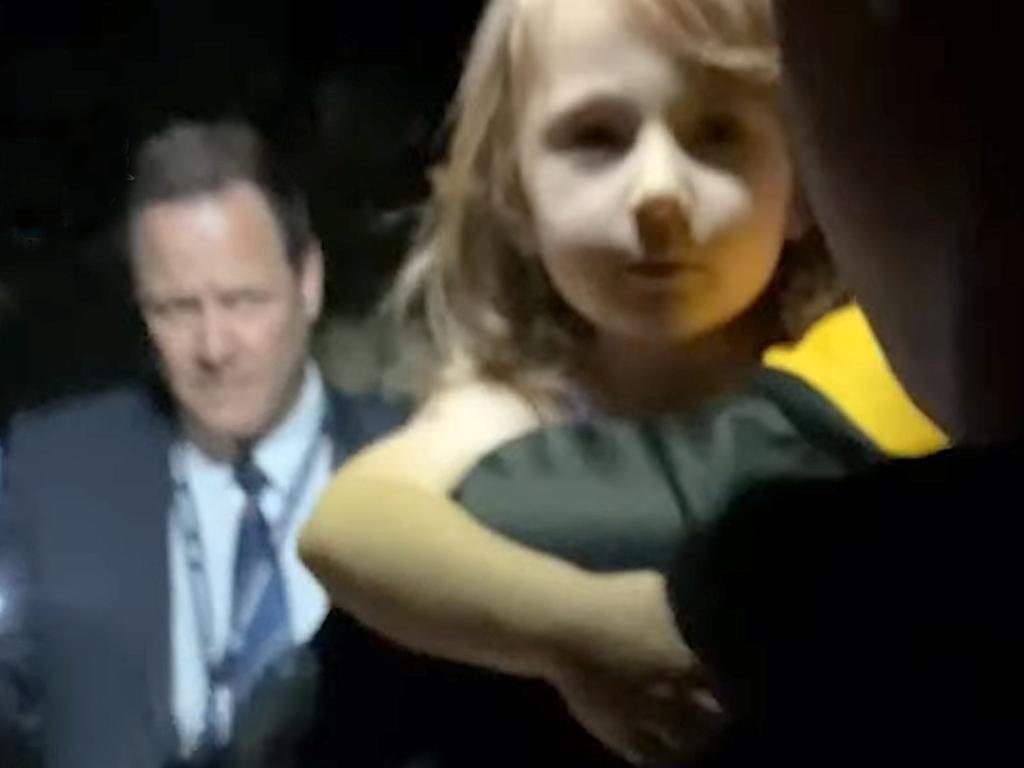How to talk to your children about Cleo Smith case
The nation’s top child psychologists offer tips on what parents should say when their kids ask them about the Cleo Smith case.
Child psychologists say Australian parents should wait to be asked before discussing the alleged abduction and discovery of Cleo Smith with their own children.
But if children raise the subject, parents are advised to answer in a calm, simple and direct way.
Deakin University child clinical psychologist and senior lecturer Dr Elizabeth Westrupp says if children are asking questions about an issue, they are generally ready to discuss it.
“The way to handle this depends very much on the nature of each child but some children are curious, asking questions and if they’re asking, they’re ready for an answer,’’ Dr Westrupp says.

“It can be a good opportunity for the parents to raise a difficult topic that is important in terms of safety, but I would suggest parents be mindful of themselves during these discussions. They should choose a time when they’re calm, confident and relaxed because they don’t want to communicate anxiety and fear to their children.’’
Since four-year-old Cleo Smith disappeared from a campsite in Western Australia on October 16, Australia watched and waited for her to be discovered, sharing the great joy at her discovery alive and well last week in a Carnarvon house.

News of the case has been widespread and difficult to ignore, even for young children.
Dr Westrupp says children are empathetic and would understandably have their own questions about Cleo’s disappearance, but she suggests parents not be overly detailed in the information they share.
“Some children are very sensitive and have strong imaginations,’’ she says.
“Unless the child has heard details in the media, it’s best to keep the information shared with young children fairly general.
“It’s really important from the child’s perspective to talk about their own safety, reinforcing that these situations are incredibly rare but the parents have things in place to keep them safe and that kids can also play a role in their own safety. Remind children that they don’t need to talk to strangers.’’
WATCH FOR SIGNS
Clinical child, adolescent and family psychologist Dr Simon Crisp says some children may have been experiencing high levels of anxiety during the search for Cleo and wondering if it could happen to them.
If children aren’t expressing these anxieties verbally, parents could watch for other signs.
“If the children haven’t already been asking about Cleo, it could be that a child is showing separation anxiety at the moment and that will appear as difficulty in leaving the parents, more trouble sleeping and fears of the dark,’’ Dr Crisp says.

“Parents can supportively inquire what’s behind their worries. This is a time to provide a lot of reassurance and perspective about their worries in a way that’s appropriate for the child’s age because a story like Cleo’s challenges children’s basic assumptions about their world and their safety which can cause confusion and anxiety. It runs against the child’s ideas of how the world is.’’
Children aged 5-8 need simple messages and the less detail, the better.
Acknowledge the facts of Cleo’s situation but reinforce its rarity, that the parents’ primary job is to keep children safe and that they always will.
Children aged 8-12 who ask questions and may have a history of being worried about being separated from parents or have an explicit fear about being abducted need even more reassurance.
Cleo’s situation may activate that fear so parents need to help bring it into perspective and give children positive ways to think, rather than thoughts that make them worry.
“Say something like, ‘It’s so rare it’s more likely to have an aeroplane crash on the house’,’’ he says.
“Parents who are emotional or animated about this should have conversations about Cleo out of hearing range from their child because it can alert the child to a story that they don’t really need to know about.’’
MIND YOUR CUES
Monash University’s head of the school of educational psychology and counselling Professor Andrea Reupert says parents shouldn’t even mention the word ‘worry’ in these conversations with their children and be aware children take their cues from their parents.
“Instead of telling children all about the Cleo incident, ask your child what they know about Cleo and whether they have any questions about it,’’ Prof. Reupert says.
“That way, you can find out what your child knows and what they want to know without overwhelming them.
“Gauge their reaction to the facts of the situation. Part of this conversation may include teaching children very early on that ‘my body is my body’ and that if someone is touching them in a way that makes them feel uncomfortable, they’re allowed to make a fuss.
“This is a good time for parents to remember how precious and loved they are. They’re to be cherished and enjoyed.’’
More Coverage
Originally published as How to talk to your children about Cleo Smith case




